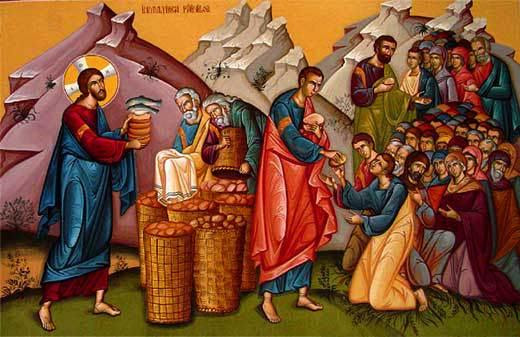 Our readings today remind us that our God is a tender and loving God.
Our readings today remind us that our God is a tender and loving God. Our First Reading, from the book of Wisdom, helps answer a common question in our Catholic faith — why is there suffering and death?
We are tempted to be angry at God for death of loved ones or innocent people. We are also tempted to be angry at Him our sufferings — like illness, car troubles or a terrible week at work. Wisdom teaches us, “God did not make death, nor does he rejoice in the destruction of the living.” Rather, “God formed man to be imperishable; the image of his own nature he made him.”
It was in God’s original plan for man to not suffer and to not die. This is how the world began with Adam and Eve in the Garden of Eden. It is when they sinned that suffering and death entered our lives, as Wisdom states, “by the envy of the devil, death entered the world.”
To restore God’s original plan, and to save us from the state of sin and death, He sent His only Son to revive our souls. Through Jesus Christ, we once again are imperishable when we enter eternal life.
Because of Him, our suffering is not meaningless. As we’re told in the Scriptures, God did not create suffering and death. However, because He loves us, He allows it so that we might become united to Him and have an opportunity to participate in His work of salvation.
In our Gospel, Jesus heals two people — a sick woman and an ill child. The woman and the father of the child approached Jesus because they heard of His healing works.
The first healing was a woman who suffered physically for many years. She believed that, “if I but touch his clothes, I shall be cured.” As Jesus questioned who touched Him, she fell at her knees and confessed the truth of what she had done. Jesus replied with such tender words, “Daughter, your faith has saved you. Go in peace and be cured of your affliction.”
These words that Christ spoke are very similar to the words He speaks to us during the Sacrament of Reconciliation. As we kneel before a priest with sorrow in our hearts and profess the entire truth of how we have offended our Lord, Christ can only reply with such tender words, “Daughter or son, your sins are forgiven. Go in peace.”
As this woman got on her knees and felt ashamed of what she did, Jesus could only look at her with eyes of love. So too, as we kneel before Christ, feeling ashamed and unwanted, all He can do is look at us with love and see our great faith.
The second healing was of a 12-year-old girl. An anxious and loving father sought after Jesus so that his daughter might be cured of her illness. As Jesus was traveling to heal her, they got word that the daughter had died. In that deeply painful moment, a moment no parent wants to experience, Jesus turned and said, “Do not be afraid; just have faith.”
Recall a moment when you felt like you hit rock bottom. Maybe you received devastating news, someone died, you lost your job, you were fighting addiction, or you were suffering mentally, spiritually or physically. Maybe you are living that moment or maybe that moment is yet to come.
In that time, imagine Jesus looking at you and saying, “Do not be afraid; just have faith.” Remember this verse. May it bring you peace and comfort in tribulation. Recall, as Wisdom tells us, God does not rejoice in our suffering and death. He rejoices in our faith and our trust in His glorious plan for our lives.
Whether we are healed like the little girl in our Gospel in this life, or we carry our suffering with us until we reach the next, if we remain faithful, Jesus will one day say to us, “Little girl or little boy, I say to you, arise!”
Today, let us reflect on how much our Good and Gracious God loves us. Remember that whatever we are suffering in this life, do not be afraid, God is right there with us. Offer it to Him, seek His healing and remain faithful so that one day we might rise.

 Our
readings today remind us that God always has our best interests in mind. No
matter what is going on in our lives, God is with us.
Our
readings today remind us that God always has our best interests in mind. No
matter what is going on in our lives, God is with us. 
